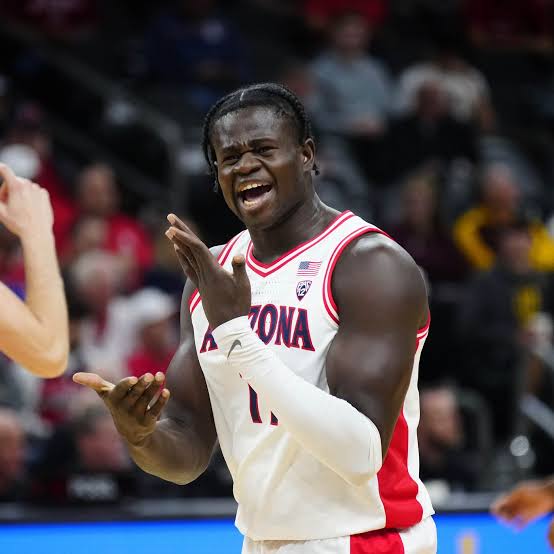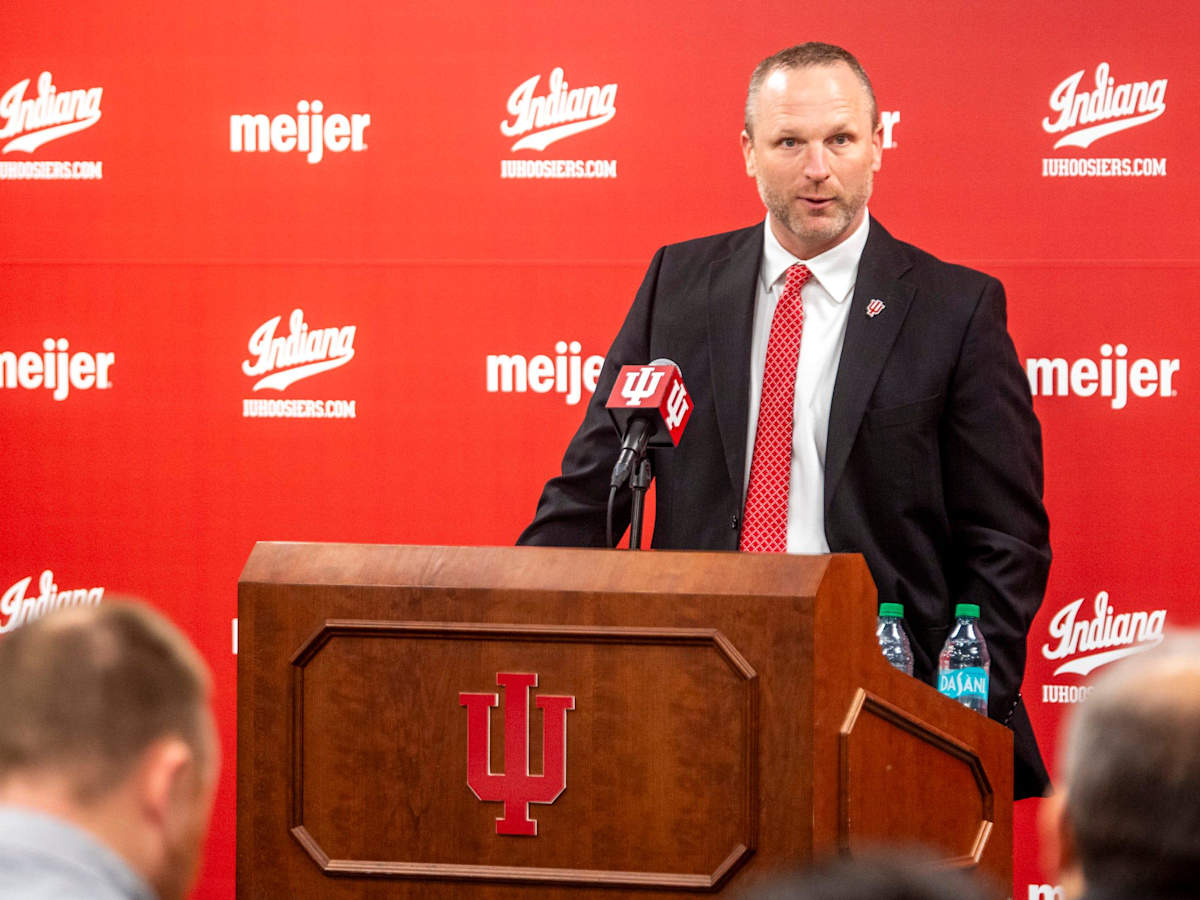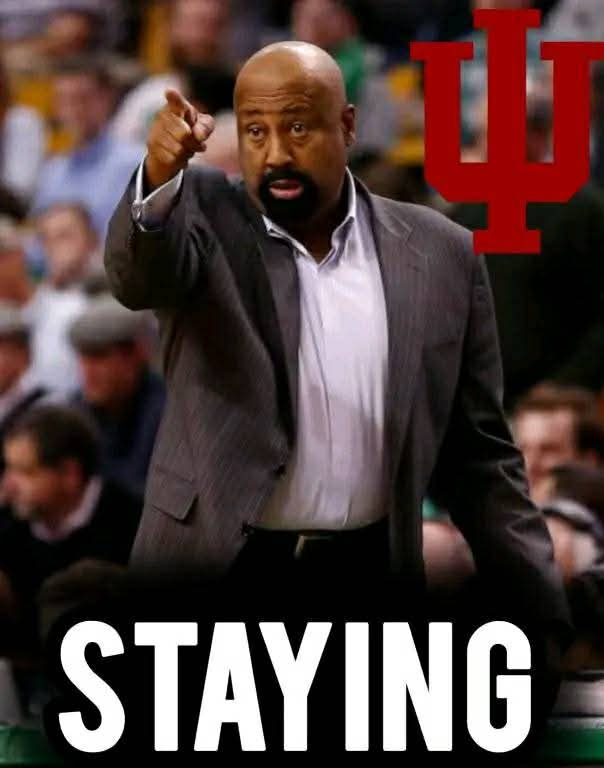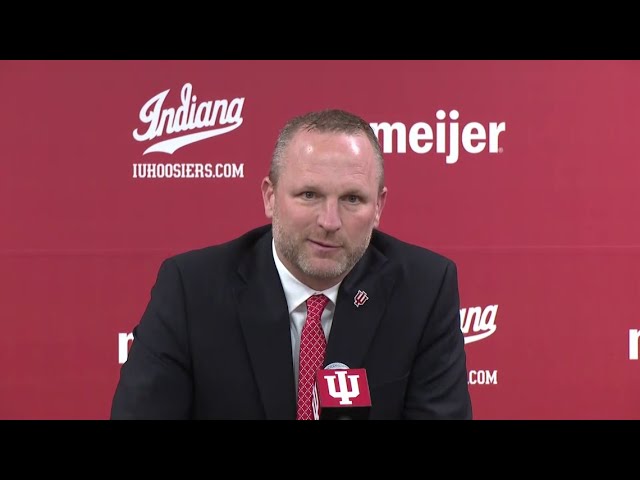Indiana QB Oumar Ballo has reportedly turned down a massive $11.9million NIL offer form South Carolina , reaffirming his commitment to flnising his college career with the indaina Hoosiers …
Indiana quarterback Oumar Ballo has made headlines recently after rejecting a substantial $11.9 million NIL (Name, Image, and Likeness) offer from South Carolina, opting instead to remain with the Indiana Hoosiers and complete his college career in Bloomington. This decision has sparked significant conversation around college athletics, especially as NIL deals continue to reshape the landscape of college sports.
Ballo, a rising star in college football, has quickly become one of the most talked-about players in the nation due to his impressive performances on the field and his growing prominence as a potential NFL prospect. His decision to reject such a lucrative NIL offer speaks volumes about his values, commitment to his current program, and desire for continuity in his development as a player and person. Many viewed the South Carolina offer as a game-changer, one that could set Ballo and his family up financially for life. However, Ballo’s choice indicates that money alone isn’t the driving factor in his decision-making process.
Indiana, which has made strides in recent years under head coach Tom Allen, has long been a program that emphasizes player development and team culture. Ballo’s decision to stay with the Hoosiers could be seen as a testament to the strong relationships he’s built within the team and coaching staff, as well as his belief in the program’s direction. At a time when many college athletes are making moves based solely on financial incentives, Ballo’s decision to remain loyal to Indiana is a refreshing change of pace.
The rejection of the $11.9 million offer also shines a light on the growing influence of NIL deals in college athletics. While the NCAA’s approval of NIL rights has opened up opportunities for athletes to profit off their personal brands, it has also introduced new complexities and challenges. Players are now faced with difficult choices—balancing the allure of massive sums of money with their commitment to their teams and personal growth.
Ballo’s decision to stay at Indiana despite the offer from South Carolina is also significant in that it underscores the broader trend of athletes seeking stability and a sense of belonging. In an era of rampant transfers and constant roster changes, many college athletes, especially those in football and basketball, find themselves constantly weighing options for the best financial outcome or a chance to play in a higher-profile program. By turning down the South Carolina offer, Ballo not only prioritizes his growth on the field but also his long-term happiness and commitment to a program that has supported him thus far.
This decision also reflects a growing narrative in college football and basketball where the most successful programs are those that foster strong bonds among players and coaching staff. While financial incentives may be tempting, many athletes are finding that a sense of loyalty, a strong team culture, and a dedicated coaching staff can be just as valuable in shaping their futures.
For the Hoosiers, this decision is a major win, both on the recruiting trail and in terms of maintaining momentum. Ballo’s continued presence on the roster will bring stability and leadership to the team, helping to build on the strides the program has made over the past few seasons. Indiana fans can now rest assured that one of the most exciting talents in college football will remain with the Hoosiers, and they can look forward to more memorable moments from their quarterback.
In conclusion, Oumar Ballo’s rejection of the massive NIL offer from South Carolina underscores the evolving nature of college athletics, where loyalty and personal growth can sometimes outweigh the allure of immediate financial gain. His decision serves as a reminder that, while NIL deals are changing the game for college athletes, they are not the only factors that shape a player’s journey. For Ballo, finishing his college career with the Hoosiers is more about his development, both as a player and as an individual, than it is about the financial rewards that may lie ahead.




